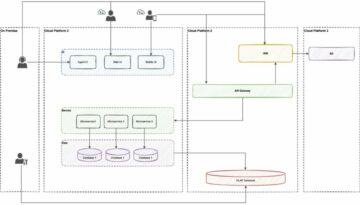
In recent years, the term “green-hushing” has emerged in the corporate world, reflecting a growing trend where companies are becoming more reticent about publicly discussing their Environmental, Social, and Governance (ESG) initiatives. This phenomenon is
a stark contrast to the once fervent embrace of ESG principles, where firms were eager to highlight their sustainability efforts and social responsibility. The shift towards green-hushing is attributed to several factors, including regulatory scrutiny, fear
of greenwashing accusations, and the evolving landscape of stakeholder expectations.
Initially, ESG efforts were a badge of honor for companies, signaling their commitment to ethical practices and sustainable growth. Firms proudly showcased their initiatives to reduce carbon footprints, enhance diversity and inclusion, and improve corporate
governance. This transparency was not only a tool for building brand reputation but also a way to attract investors who were increasingly prioritizing ESG criteria in their investment decisions.
However, as the spotlight on ESG intensified, so did the scrutiny. Regulatory bodies began to tighten their oversight on ESG claims, ensuring that companies were not merely paying lip service to these principles but were genuinely integrating them into their
business models. This heightened scrutiny led to a rise in allegations of greenwashing, where companies were accused of misleading stakeholders about the environmental benefits of their products or policies. The fear of being labeled a greenwasher has made
many companies more cautious about publicizing their ESG efforts.
Moreover, the expectations of stakeholders have evolved. Investors, customers, and employees now demand not just transparency but also verifiable impact. They want to see concrete results and evidence that companies are making meaningful progress towards their
ESG goals. This shift has compelled companies to focus more on internal improvements and less on external communication. By keeping their ESG efforts under wraps, firms aim to avoid the backlash that can arise from unmet promises or perceived inadequacies.
Another contributing factor to green-hushing is the changing political and economic climate. The pushback against ESG initiatives from certain political quarters has created a contentious environment, making it more challenging for companies to navigate the
complexities of ESG discourse. Additionally, economic pressures, such as inflation and supply chain disruptions, have forced companies to re-evaluate their priorities, often sidelining ESG discussions in favor of immediate financial concerns.
Despite these challenges, the importance of ESG cannot be overstated. Companies that genuinely integrate ESG principles into their operations can achieve long-term benefits, including risk mitigation, enhanced reputation, and increased investor confidence.
The key is to strike a balance between transparency and authenticity, ensuring that ESG efforts are both impactful and credible.
To navigate this landscape, companies should focus on a few strategic actions. First, they should enhance their internal ESG capabilities, investing in robust systems for tracking and reporting ESG metrics. This will enable them to provide verifiable data to
stakeholders, building trust and credibility. Second, firms should engage in open dialogue with their stakeholders, understanding their concerns and expectations. This can help in aligning ESG initiatives with stakeholder priorities and addressing any potential
issues proactively. Lastly, companies should adopt a long-term perspective, recognizing that ESG is a journey rather than a destination. By committing to continuous improvement and staying adaptable, firms can weather the complexities of the ESG landscape
and emerge as leaders in sustainable and responsible business practices.
How technology partners can help:
Technology partners can play a pivotal role in helping companies navigate the complexities of ESG initiatives and overcome the challenges of green-hushing. By leveraging advanced technological solutions, companies can enhance their ESG strategies and ensure
they meet the evolving expectations of stakeholders.
1. Data Management and Analytics: Technology partners can provide robust data management and analytics platforms that enable companies to collect, analyze, and report on ESG metrics effectively. These platforms can help in tracking progress, identifying areas
for improvement, and ensuring compliance with regulatory requirements. Advanced analytics can also provide insights into the impact of ESG initiatives, helping companies make data-driven decisions and communicate their achievements transparently.
2. Automation and AI: Automation tools and artificial intelligence can streamline ESG reporting processes, reducing the burden on internal teams and minimizing the risk of errors. AI can also be used to monitor compliance with ESG standards, identify potential
risks, and provide real-time insights into environmental and social impacts. This allows companies to proactively address issues and demonstrate their commitment to sustainability.
3. Blockchain for Transparency: Blockchain technology can enhance transparency in ESG reporting by providing an immutable record of transactions and activities. This can be particularly useful for supply chain management, ensuring that all parties involved
adhere to ESG standards. Blockchain can also help in verifying the authenticity of ESG claims, reducing the risk of greenwashing accusations.
4. Stakeholder Engagement Platforms: Technology partners can offer platforms that facilitate communication and engagement with stakeholders. These platforms can be used to gather feedback, share updates, and collaborate on ESG initiatives. By fostering open
dialogue, companies can better understand stakeholder expectations and align their strategies accordingly.
5. Sustainability Reporting Software: Specialized sustainability reporting software can simplify the process of compiling ESG reports, ensuring they are comprehensive and compliant with global standards. These tools can automate data collection, generate
customized reports, and provide benchmarking against industry peers.
6. Cloud-Based Solutions: Cloud-based solutions offer scalability and flexibility, allowing companies to manage their ESG data and initiatives efficiently. Cloud platforms can support real-time data sharing and collaboration across different departments
and geographies, ensuring a cohesive approach to ESG management.
By partnering with technology providers, companies can leverage these advanced solutions to enhance their ESG strategies, improve transparency, and build trust with stakeholders. Embracing technology not only helps in meeting regulatory requirements but also
positions companies as leaders in sustainable business practices, ultimately contributing to a more equitable and environmentally conscious future.
- SEO Powered Content & PR Distribution. Get Amplified Today.
- PlatoData.Network Vertical Generative Ai. Empower Yourself. Access Here.
- PlatoAiStream. Web3 Intelligence. Knowledge Amplified. Access Here.
- PlatoESG. Carbon, CleanTech, Energy, Environment, Solar, Waste Management. Access Here.
- PlatoHealth. Biotech and Clinical Trials Intelligence. Access Here.
- Source: https://www.finextra.com/blogposting/26161/eshhhh-green-hushing-the-silent-shift-in-corporate-esg-talk?utm_medium=rssfinextra&utm_source=finextrablogs
- :has
- :is
- :not
- :where
- a
- About
- accordingly
- Accusations
- accused
- Achieve
- achievements
- across
- actions
- activities
- adaptable
- Additionally
- address
- addressing
- adhere
- adopt
- advanced
- against
- AI
- aim
- align
- aligning
- All
- Allegations
- Allowing
- allows
- also
- an
- analytics
- analyze
- and
- any
- approach
- ARE
- areas
- arise
- artificial
- artificial intelligence
- AS
- attract
- authenticity
- automate
- Automation
- avoid
- Balance
- BE
- becoming
- began
- being
- benchmarking
- benefits
- Better
- between
- blockchain
- blockchain technology
- bodies
- both
- brand
- build
- build trust
- Building
- burden
- business
- business models
- business practices
- but
- by
- CAN
- cannot
- capabilities
- carbon
- cautious
- certain
- chain
- challenges
- challenging
- changing
- claims
- Climate
- Cloud
- cohesive
- collaborate
- collaboration
- collect
- collection
- commitment
- committing
- communicate
- Communication
- Companies
- compelled
- complexities
- compliance
- compliant
- comprehensive
- Concerns
- concrete
- confidence
- conscious
- contentious
- continuous
- contrast
- contributing
- Corporate
- created
- Credibility
- credible
- criteria
- Customers
- customized
- data
- data management
- data sharing
- data-driven
- decisions
- Demand
- demonstrate
- departments
- destination
- dialogue
- DID
- different
- discourse
- discussing
- discussions
- disruptions
- Diversity
- Diversity and inclusion
- eager
- Economic
- effectively
- efficiently
- efforts
- embrace
- embracing
- emerge
- emerged
- employees
- enable
- engage
- engagement
- enhance
- enhanced
- ensure
- ensuring
- Environment
- environmental
- environmentally
- equitable
- Errors
- ESG
- ethical
- evidence
- evolved
- evolving
- expectations
- external
- facilitate
- factor
- factors
- favor
- fear
- feedback
- few
- financial
- Finextra
- firms
- First
- Flexibility
- Focus
- For
- forced
- fostering
- from
- future
- gather
- generate
- genuinely
- geographies
- Global
- Goals
- governance
- Green
- Growing
- Growth
- Have
- heightened
- help
- helping
- helps
- Highlight
- honor
- HTTPS
- identify
- identifying
- immediate
- immutable
- Impact
- impactful
- Impacts
- importance
- improve
- improvement
- improvements
- in
- Including
- inclusion
- increased
- increasingly
- industry
- inflation
- initiatives
- insights
- integrate
- Integrating
- Intelligence
- intensified
- internal
- into
- investing
- investment
- investor
- Investors
- involved
- issues
- IT
- journey
- jpg
- just
- keeping
- Key
- landscape
- lastly
- leaders
- Led
- less
- Leverage
- leveraging
- long-term
- long-term benefits
- made
- make
- Making
- manage
- management
- many
- meaningful
- Meet
- meeting
- merely
- Metrics
- minimizing
- misleading
- mitigation
- models
- Monitor
- more
- Navigate
- now
- of
- offer
- often
- on
- once
- only
- open
- Operations
- or
- Overcome
- Oversight
- overstated
- particularly
- parties
- partnering
- partners
- paying
- peers
- perceived
- perspective
- phenomenon
- pivotal
- Platforms
- plato
- Plato Data Intelligence
- PlatoData
- Play
- policies
- political
- positions
- potential
- practices
- pressures
- principles
- priorities
- prioritizing
- proactively
- process
- processes
- Products
- Progress
- promises
- proudly
- provide
- providers
- providing
- publicly
- rather
- real-time
- real-time data
- recent
- recognizing
- record
- reduce
- reducing
- reflecting
- regulatory
- report
- Reporting
- Reports
- reputation
- Requirements
- responsibility
- responsible
- Results
- Rise
- Risk
- Risk Mitigation
- risks
- robust
- Role
- Scalability
- scrutiny
- Second
- see
- service
- several
- Share
- sharing
- shift
- should
- showcased
- simplify
- So
- Social
- Software
- Solutions
- specialized
- Spotlight
- stakeholder
- stakeholders
- standards
- stark
- staying
- Strategic
- strategies
- streamline
- strike
- such
- supply
- supply chain
- supply chain management
- support
- Sustainability
- sustainable
- Sustainable Growth
- Systems
- teams
- technological
- Technology
- term
- than
- that
- The
- their
- Them
- These
- they
- this
- tighten
- to
- tool
- tools
- towards
- Tracking
- Transactions
- Transparency
- transparently
- Trend
- Trust
- Ultimately
- under
- understand
- understanding
- unmet
- Updates
- used
- useful
- verifiable
- verifying
- want
- was
- Way..
- Weather
- were
- WHO
- will
- with
- world
- years
- zephyrnet












